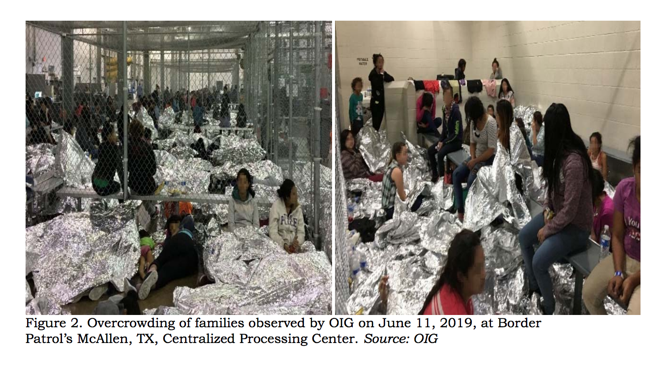As usual, use this thread to discuss topics not related to recent posts.
Month: July 2019
 Matt was one of the writers at BOPNews, in what seems like a long time ago now. He also wrote for MyDD for years. After that he, among other things, spent time on the Hill as a Congressional aide, to learn how politics and governance actually works.
Matt was one of the writers at BOPNews, in what seems like a long time ago now. He also wrote for MyDD for years. After that he, among other things, spent time on the Hill as a Congressional aide, to learn how politics and governance actually works.
He left and joined an anti-trust think tank, Open Markets Institute, and in January he started an email newsletter about anti-trust issues.
I’ve been reading it, and it’s good. Matt’s knowledge is encyclopedic, and he writes clearly and well. Matt’s chosen “bigness,” which is to say concentrations of power as the, er, big, issue he’s going to devote himself to defeating, and he’s spent years learning everything about it.
So, you can read BIG’s back issues here, and if you scroll to the bottom, you can sign up for the emails. Matt’s also on Twitter and quite active. You can follow him at @matthewstoller
Matt’s a friend, to be clear, but I don’t push even my friends stuff if I don’t think it’s good. This list is far beyond good, it is excellent and will give you an education you can’t get anywhere else.
Admin: Internet finally back.
The results of the work I do, like this article, are free, but food isn’t, so if you value my work, please DONATE or SUBSCRIBE.
 The simplest decision making loop is “only do things you like.”
The simplest decision making loop is “only do things you like.”
Sometimes getting something we want (presumably something which will let us do things we like) we must do something we dislike, or wouldn’t otherwise do.
So the next decision is “is what I get from doing something I don’t like worth doing this thing I don’t like?”
Close to the state of nature, this might include hunting, gathering, planting crops and so on. Without food, water and shelter we can’t do anything else, because we’re dead.
In modern societies this means finding a way to get money. Most of us probably wouldn’t do our current job if we didn’t need money.
But what I see is that many people hate their jobs, spend all their time working, and buy stuff they don’t have time use to do things they like.
That big house in the suburbs, with a 2 hour commute either way, so they’re hardly there and can’t enjoy it.
A spouse, who they never see, but who (let’s be honest) they make money so they can have.
Various toys they rarely actually use.
Children they never see. (Presumably you got children because you thought you’d like having children? I mean, clearly many parents don’t actually, but…)
The problem of subsistence is complicated by the fact that we live in capitalist societies. What capitalism means is that a few people own the means of production: land, machines, the right to create money out of thing air, etc… So most of us can only sell our labor. Yeah, a few people can get around this, but most people can’t, or our society would stop being capitalist, since capitalism requires this concentration.
Since someone else is taking most of the surplus we produce, we have to work longer than we otherwise would. (There’s a long argument here about whether capitalism leads to being more productive and therefore less labor, we’ll pass that by for now.)
Even if you want to bugger off and set up a little subsistence society, you usually can’t, both because you can’t just go take some land, even if it’s not being used by anyone, and because taxes will destroy you. (This is what taxes are for, to force you into the capitalist economy because you need money to pay them. This is why many wars were fought over the right to pay taxes with goods or labor, and not money, or vice versa.)
And then there is the question of coercion. Police, tax collectors, the military, private security like the Pinkertons.
People who are there to stop the hoi polloi from using force against people who have a lot of stuff, and got it without other people really approving of how they got it. Natural societies are egalitarian because there are no cops, armies or private retainers, so if other people don’t want you to have it, you don’t. (This isn’t always a good thing, but sometimes it is. It varies.)
Still, at the end of the day, the natural human impulse, which we have buried under a mountain of cultural conditioning about how wonderful work is, and to not be lazy and so on, is to work only to fill needs and to spend our time doing things we love.
Mind you, I know people who love hunting, fishing and farming (never got loving farming myself, but I’ve met ‘em.) It’s not like you can’t love doing what also gets you stuff.
But maybe you don’t. And I’m not sure that it’s wrong to not want to spend most of your life doing things you don’t want to do (and often evil things) to get stuff you may not even have time to enjoy much.
Just a thought.
So perhaps remember the basic loop. And ask why we’ve set up our society to spend tons of time doing work we hate, so a few people can be very rich and the rest of us can have stuff we don’t have time to enjoy.
Admin Note: Due to vagaries of phone company and neighbours I have no internet at home. This may be resolved in a few days or take a couple weeks. Until I have internet at home comments will be approved, likely, only once a day and posting may be a bit sporadic.
The results of the work I do, like this article, are free, but food isn’t, so if you value my work, please DONATE or SUBSCRIBE.
 The simplest of maxim in all of ethics is: “I don’t harm others, I don’t harm myself.”
The simplest of maxim in all of ethics is: “I don’t harm others, I don’t harm myself.”
The problem with this ethic arises when someone else hurts you.
What do you do?
Perhaps the first step is to ask them to stop. If they don’t, attempt to move away from them.
If you can’t or if moving away harms you, the next step is violence.
“If you won’t stop hurting me, I’ll have to make you stop.”
In a complex society like ours this becomes complicated. There are people doing harm to you and me right now. Rich people, mostly, and powerful people like politicians and senior corporate officers. They kill people, impoverish people and make people sick for their own benefit. They don’t stop when asked nicely, or even rudely.
They also use a lot of violence to get their way and keep hurting people. I trust this is self-evident. The police and military don’t serve “the people,” except incidentally. Some schmuck who does some drugs goes away for years, while the crooks who brought down the economy and left millions homeless and impoverished because of their fraud and corruption pay a few fines that are less than what they stole.
But, the bottom line is they hurt people and won’t stop when asked, nor can one move away from the hurt they are inflicting. This hurt is likely to kill some billions of people.
So violence is justified. This isn’t a moral/ethical problem, it is a tactical strategic question. It is no longer a question of whether violence is justified against people who are doing great evil and won’t stop when asked, but a question of whether it will work and what is required to make it work.
The results of the work I do, like this article, are free, but food isn’t, so if you value my work, please DONATE or SUBSCRIBE.
Week-end Wrap – Political Economy – July 6, 2019
by Tony Wikrent
Economics Action Group, North Carolina Democratic Party Progressive Caucus
I tremble for my country when I reflect that God is just
What a Pediatrician Saw Inside a Border Patrol Warehouse
[The Atlantic, , via Naked Capitalism 7-5-19]
Dolly Lucio Sevier evaluated dozens of sick children at a facility in South Texas. She found evidence of infection, malnutrition, and psychological trauma.
At Ursula, however, the children Sevier examined—like the panting 2-year-old—were “totally fearful, but then entirely subdued,” she told me. She could read the fear in their faces, but they were perfectly submissive to her authority. “I can only explain it by trauma, because that is such an unusual behavior,” she said. Sevier had brought along Mickey Mouse toys to break the ice, and the kids seem to enjoy playing with them. Yet none resisted, she said, when she took them away at the end of the exam. “At some point,” Sevier mused, “you’re broken and you stop fighting.”
….Border Patrol has long maintained that it is not equipped to handle children, who are supposed to be transferred into the custody of the Office of Refugee Resettlement within three days. After that, many kids are housed in licensed child-care facilities that look more like the average public school than a jail. The federal government has attributed slow transfers to the sharp uptick in the number of migrants at the southern border; in May, 144,200 migrants were taken into custody—the highest monthly total in 13 years.
Days before Sevier’s visit, reports of poor conditions at a similar facility in Clint, Texas, drew outrage around the country. Kevin McAleenan, the acting head of the Department of Homeland Security, told reporters the outcry was based on “unsubstantiated allegations regarding a single Border Patrol facility.”
But his own agency’s watchdogs soon contradicted him—the problems are not restricted to Clint.
Predatory Finance
The British Virgin Islands is home to more than 400,000 companies that hold $1.5 trillion in assets…. Even though he helped get it up and running, Geluk doesn’t have permission to scan the whole database. In fact, only two people, a pair of unnamed employees of the BVI’s Financial Investigation Agency, are able to search the entire system, which holds details on about 600,000 owners who have directly or indirectly controlled companies here. It’s thought that roughly a third of all offshore companies globally are registered in the BVI….
Spent the last week dealing with bureaucracy and various paperwork. Given it was the week of both Canada Day and Independence Day, this seemed like a good time to reduce posting.
Regular posting will resume this coming week.
In the meantime, feel free to use this as an open thread.

US Constitution by KJD
It’s sometimes unclear to me whether the US has been more of a good thing than a bad thing, but Happy Independence Day. Remember to thank the French–there’s a fairly strong case that without them, the US would have lost the War of Independence.
But every powerful nation has committed their share of atrocities, so, well, so be it.
Enjoy the day.
 Canada remains a good country to live in. There are a few countries– mostly northern European-that have better statistics, but not too many.
Canada remains a good country to live in. There are a few countries– mostly northern European-that have better statistics, but not too many.
Outsiders tend to overestimate how good, however, and Americans, in particular, tend to idealize Canada a bit too much.
The key thing to understand about Canadian politics is that they are right-wing trending, the same as the US. This shouldn’t be a surprise; the country is swamped with American money, ideas, and political operatives.
The difference is mostly that Canada started this rightward swing in a far better position than the US: We were more left-wing, with more support for a safety net, universal healthcare, etc.
So we have farther to go to be as bad as the US.
But we’re hustling.
And, like most countries, there are people for whom Canada is not good. Mostly this would be the indigenous peoples.
Still, overall, there are few countries I’d rather live in. Among other things, Canada still has tons of wilderness, and though I don’t get to spend much time in it any more (something I hope to remedy), I did when younger, and I value it a lot.
So, Happy Canada Day, and may we stop running down this neoliberal path before it destroys us.

